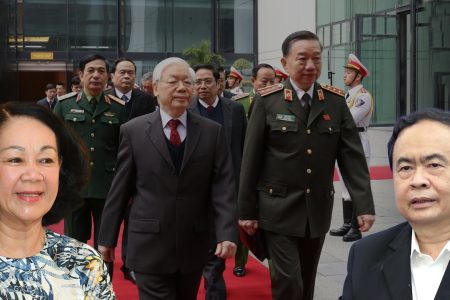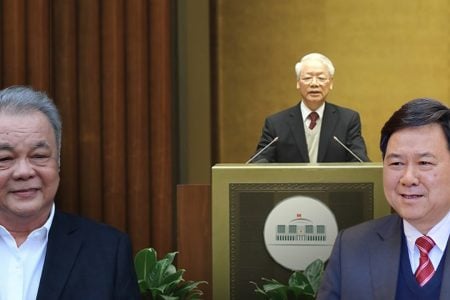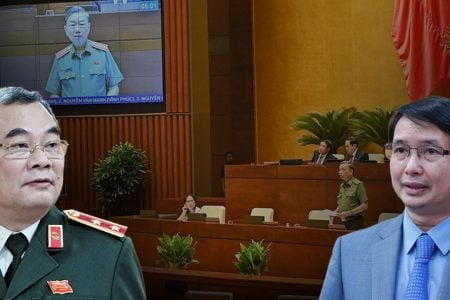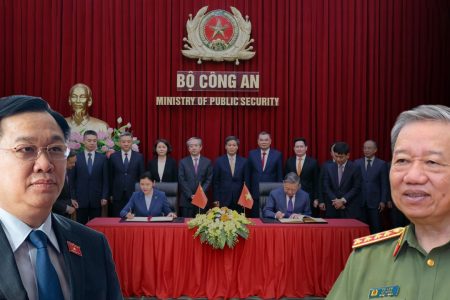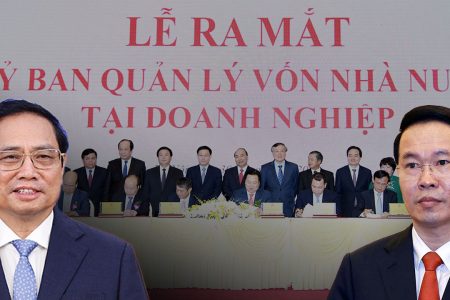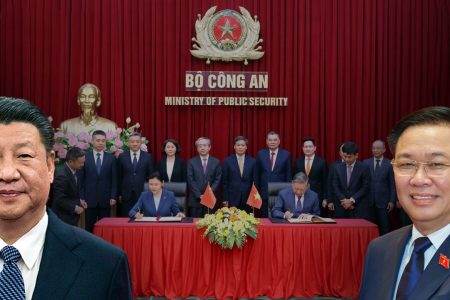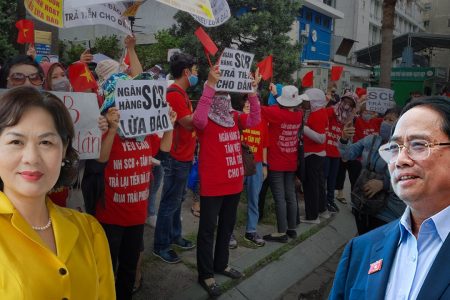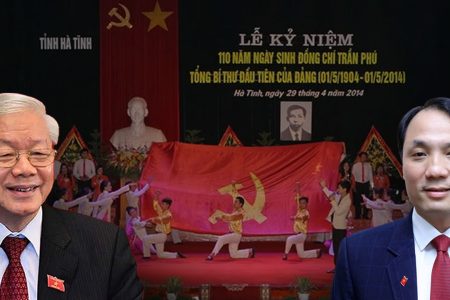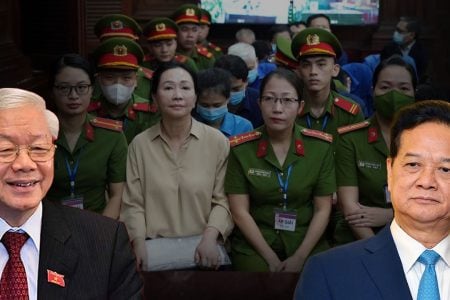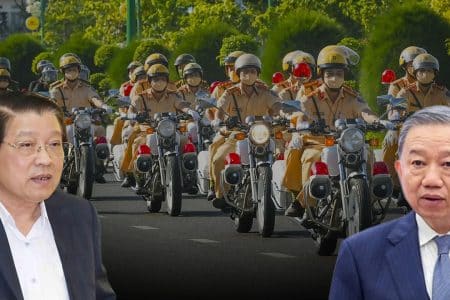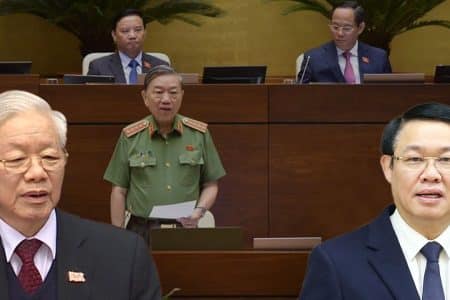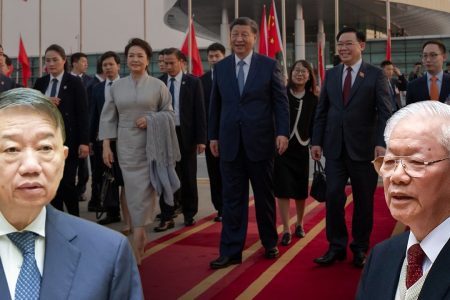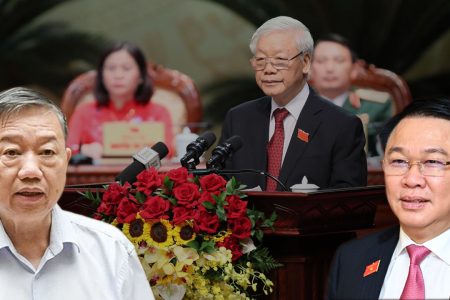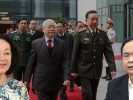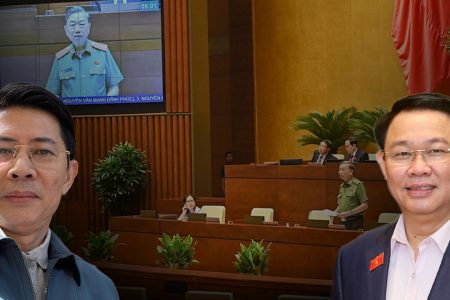
Memories of war
On this day 42 years ago, the short and bloody war took place between the two countries that were once called “communist brothers” Vietnam and China. China claims to “teach Vietnam a lesson.”
At the dawn of February 17, 1979, six hundred thousand Chinese troops with nine main corps and more than 2,500 cannons, five hundred tanks, and armored vehicles simultaneously crossed the border into six northernmost provinces of Vietnam including Quang Ninh, Lang Son, Cao Bang, Ha Tuyen, Hoang Lien Son, and Lai Chau.
On February 18, 1979, the front page of the Nhan Dan newspaper published the full-text declaration of the Socialist Republic of Vietnam on the Chinese rulers’ war of invading Vietnam and upholding the determination to protect the country.
The war ended when China announced its withdrawal on March 16, 1979. The Chief of Staff of the People’s Liberation Army of China, Mr. Deng Xiaoping, then declared that China had achieved political victory and won in the end, asserting that the Chinese “could have headed straight to Hanoi if they wanted to.”
Statistics show that 21,700 people died and were injured on the Chinese side. On the Vietnamese side, 60,000 people died and were injured.
Researcher Dinh Kim Phuc shared his feelings as a soldier at the time:
“Every year on February 17 I feel like the new story just happened yesterday. But the fiery and heroic spirit of the years against the Chinese expansion and Khmer Rouge to protect the country is different from the current mentality. Currently, I am both proud and concerned because there is something in the relationship between the two parties, the two states of Vietnam and China, which we have yet to hear. And recently, the government made a decision that Vietnam’s foreign policy was ‘top secret.’
As a gunman in that period, we find that for the past 42 years, the nature of the modern Chinese hegemonic expansionism has not changed.”
According to the Le Hieu Dang Club, although the war has been 42 years ago, there are many things that have not been recognized properly. An article published on February 16, 2020, on the club’s website clearly states that: The Northern Border War, in which China attacked Vietnam on February 17, 1979, was a war of aggression, meaningless, and cruel. The Vietnamese army and people bravely resisted, drove the invaders out of the border, and won a glorious victory. That must be in a transparent history and be taught in the school.
According to Le Hieu Dang Club, Vietnam’s regime needs to continue to seek and gather the remains of martyrs and build the Martyrs’ Cemetery, worthy of their victories and sacrifices. In addition, the State and governments at all levels need to respect organizations, social unions, and people throughout the country to organize the memorial of martyrs and people who died in the war of protecting the country’s border, considered as a spiritual activity, should be respected and supported.

Five years after the war in 1979, in just 26 days and nights of April 1984, China had its troops gathered artillery in the Vi Xuyen area, firing more than 30,000 mortar shells at Vietnam’s defensive high points and penetrated about 2 km deep into Vietnam’s territory, turning 1509 peak in Thanh Thuy commune, Yen Minh district, Ha Giang province into Lao Son of China until today.
Also at this high point, Chinese soldiers killed 3,700 Vietnamese soldiers, burning their bodies with flames and burning all the living wounded and buried in mass graves.
According to researcher Dinh Kim Phuc, although Vietnam is much weaker than China in economic and military terms, the position of Vietnam today is different from 42 years ago. Today Vietnam has the conditions to shake hands with major powers; shake hands with the continents; shaking hands with all progressive forces to have a voice on par with China. However, Hanoi still cannot respond fairly, equally to “intimidating” statements from Beijing.
In July 2020, the Global Times newspaper had an article titled “Say a few words to be honest with the Vietnamese” by editor-in-chief Hu Xijin. The author “advised” Vietnam to be vigilant in relations with the US, praised China’s policy of long-term neighbor-to-friendship with Vietnam, and concluded that Vietnamese political institutions were difficult to last for long if Chinese politics is not stable.

A week ago, in a phone call with his Vietnamese counterpart Nguyen Phu Trong, Chinese President Xi Jinping “reminded” Vietnam that: “China and Vietnam should reasonably manage the above difference and resist the inciting of external forces to promote the development of regional peace and stability.”
Mr. Trong replied: “In the current complicated international situation, the consolidation and development of friendly relations and cooperation between the two parties, the two countries, and the people of the two countries are extremely important.”
What can Vietnam learn?
According to some observers, it seems that Vietnam has not learned very well from the bloody and expensive lesson in 1979 in its relationship with China. China still plots to plunder the land, encroach the sea, and annex Vietnam, while the Vietnamese leadership led by Mr. Nguyen Phu Trong still asserts that developing and consolidating the traditional friendship between Vietnam and China have always been the top priority of the Communist Party of Vietnam and the country.
Mr. Dinh Kim Phuc said:
“I think 42 years after the Northern border war, Vietnam has learned a lot. First, it is the spirit of proletarian internationalism. That is the comrades of the communists. Those are the problems of the socialist countries. When the Khmer Rouge and China attacked Vietnam, the spirit of proletarian internationalism and the Marxist class struggle doctrine went bankrupt.
I see this is the lesson that Vietnamese leaders need to think about in the spirit of proletarian internationalism, comradeship, and putting the interests of the nation first. The second lesson that Vietnamese leaders need to memorize is why was Vietnam passive in the 1979 border war?
That was the disarmament policy of Hanoi at that time after the war ended in 1975. Hanoi did not foresee all the tricks of the Chinese authorities. That is why all the officers with experience in the battlefield went home and were passive before the war of China’s invasion.”
The second lesson that Mr. Dinh Kim Phuc raised was once told by Major General Nguyen Trong Vinh, the Vietnamese Ambassador to China from 1974 to 1987, to RFA at his time:
“The first is that our intelligence was too poor. Second, we believed too much in China’s leaders. Vietnam’s leadership was too confident in the Vietnam-China friendship! We also loosened that before the 1979 war I knew China had made a lot of roads from their inner province to the Vietnamese border, but I did not expect that by the year 1979 they used the roads for sending their soldiers to invade Vietnam. It was an experience.
Second, Vietnam loosened its wariness. I remember in the beginning we had the alarm, but by Feb 17 our Chief of Staff had lowered the alarm. So on Feb 17 they suddenly attacked us and we didn’t have the main force up there, only the local militia and army.”
In the current situation, with Vietnam, perhaps the modernization of the military, the modernization of weapons, and diversification of military relations with other countries are solid factors for China to understand that it is not desirable to do so. What Vietnam does!
Thoibao.de (Translated)




